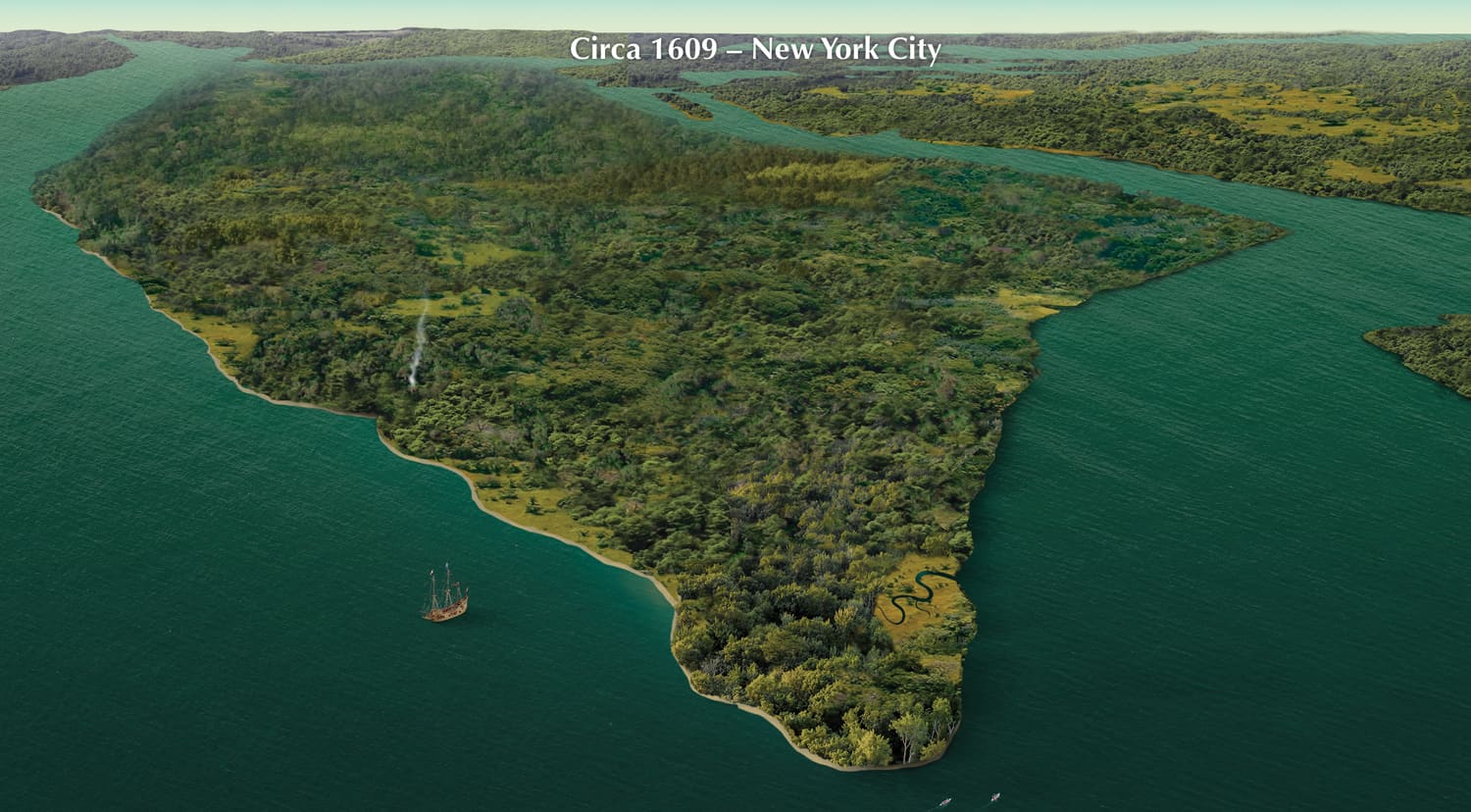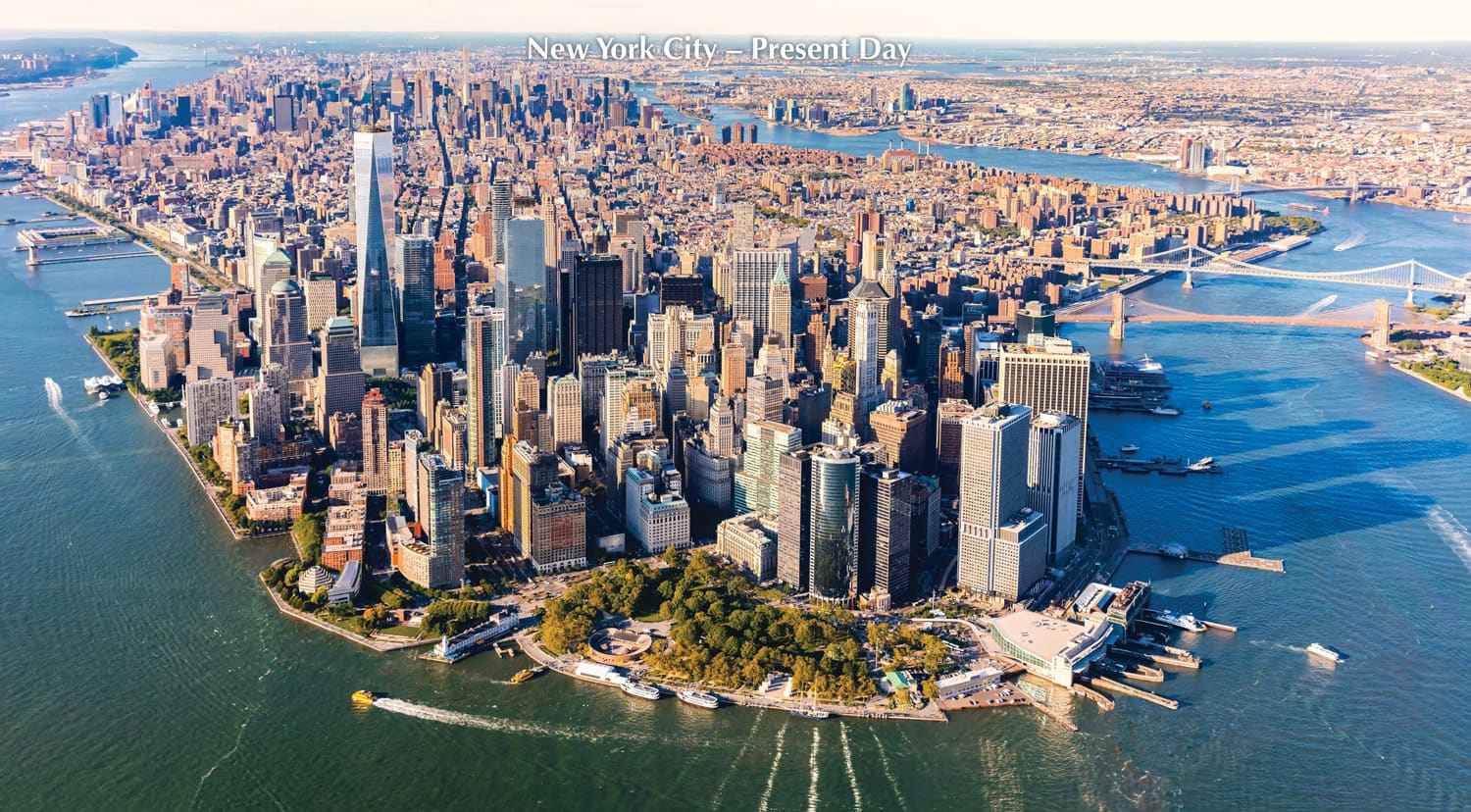
History of Penn Station's Evolution: A Landmark's Impact on Architecture and Preservation in Pictures
Constructed for the Pennsylvania Railroad, Penn Station, a New York City landmark, epitomized Beaux-Arts architecture when completed in 1910 by the renowned firm McKim, Mead, and White. Renowned for its grandiose interiors and distinct waiting areas, it became a key transportation and architectural icon. Following WWII, dwindling rail usage prompted the sale of air rights in the 1950s, leading to the notable demolition of its primary structure from 1963 to 1966.
This event marked a turning point in the U.S. historic preservation movement, directly influencing the creation of stronger preservation regulations and the founding of the New York City Landmarks Preservation Commission in 1965. The current Penn Station, redesigned as an underground complex, exists alongside Madison Square Garden and Pennsylvania Plaza, which replaced its original above-ground location.
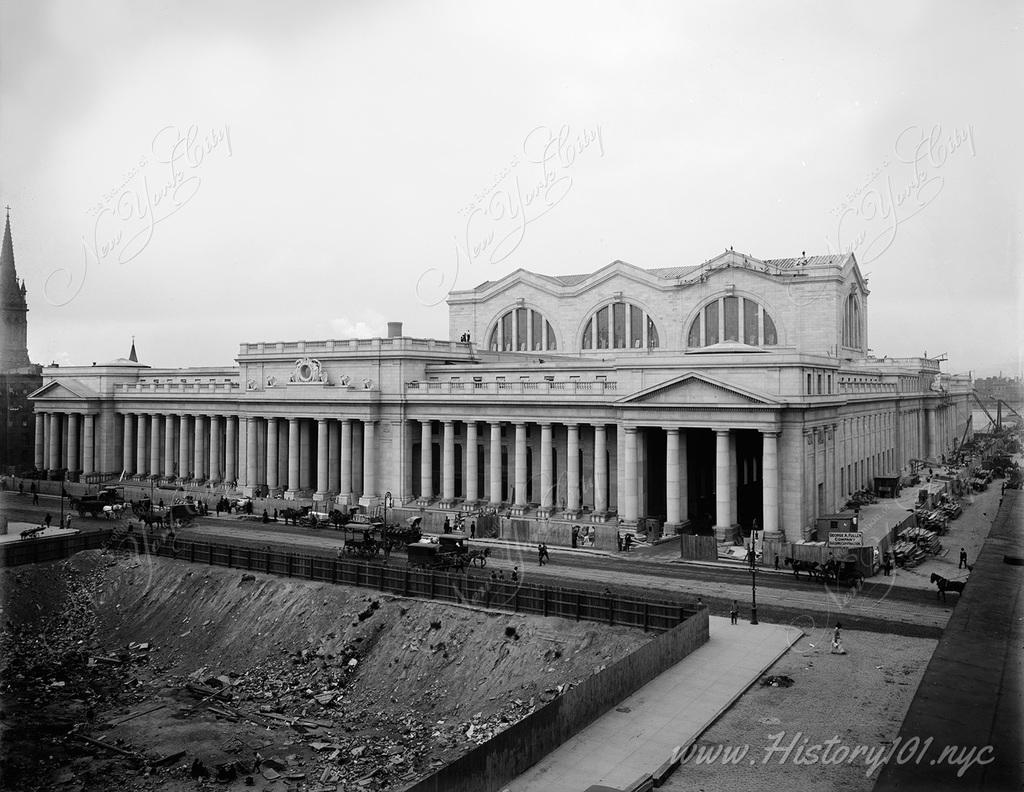
1904: Construction of New Pennsylvania Station
Aerial view of the New Pennsylvania Station whose construction is nearly complete.
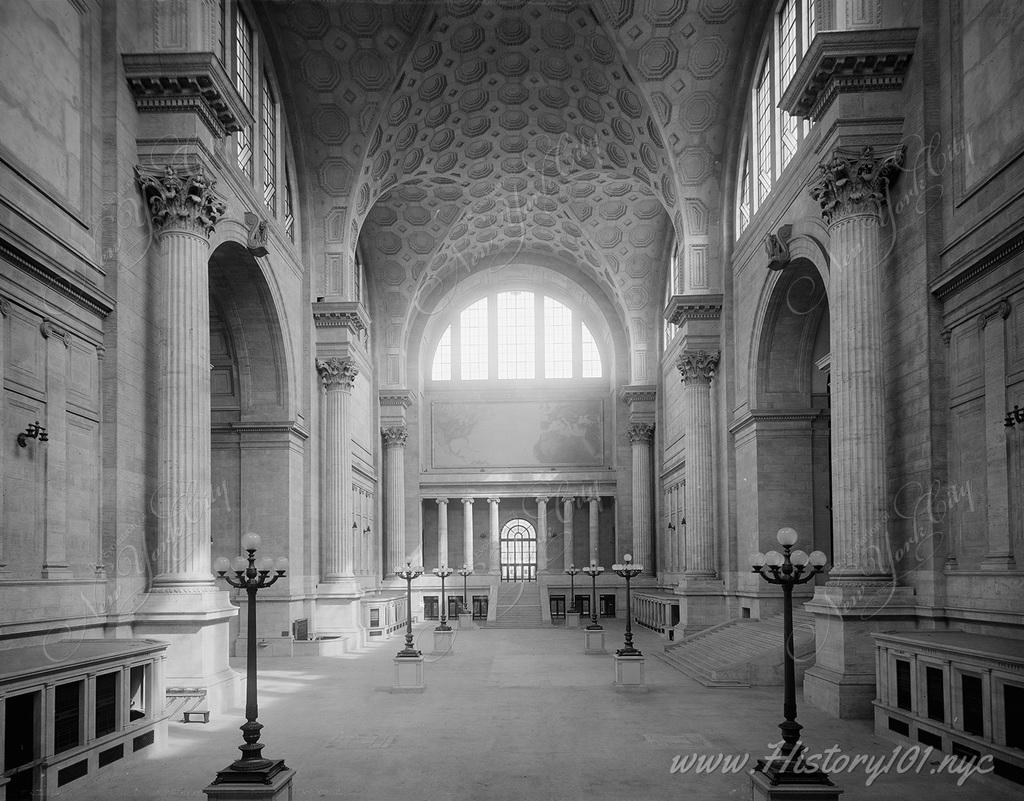
1905: Main Waiting Room at Pennsylvania Station
Interior view of Penn Station's famously opulent waiting room, with its high vaulted ceilings and turn-of-the-century stonework.
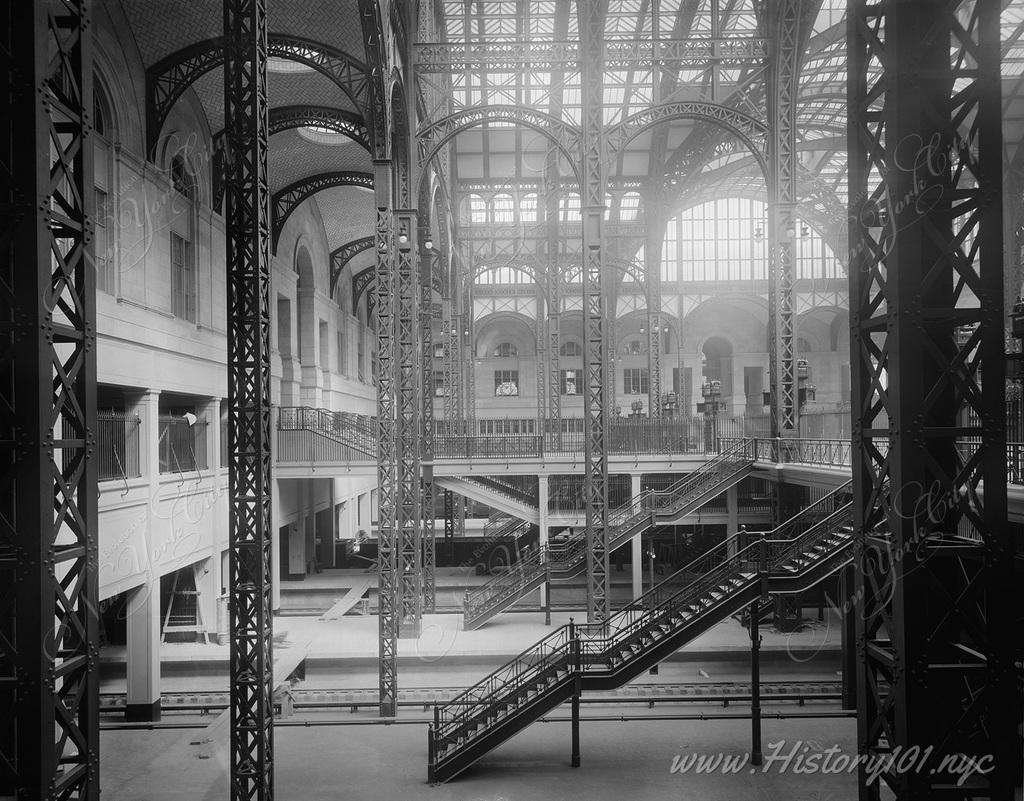
1905: Track Level and Concourses at Pennsylvania Station
Interior view of Penn Station's concourses, drenched by the sun due to the greenhouse-inspired design of its glass ceiling.
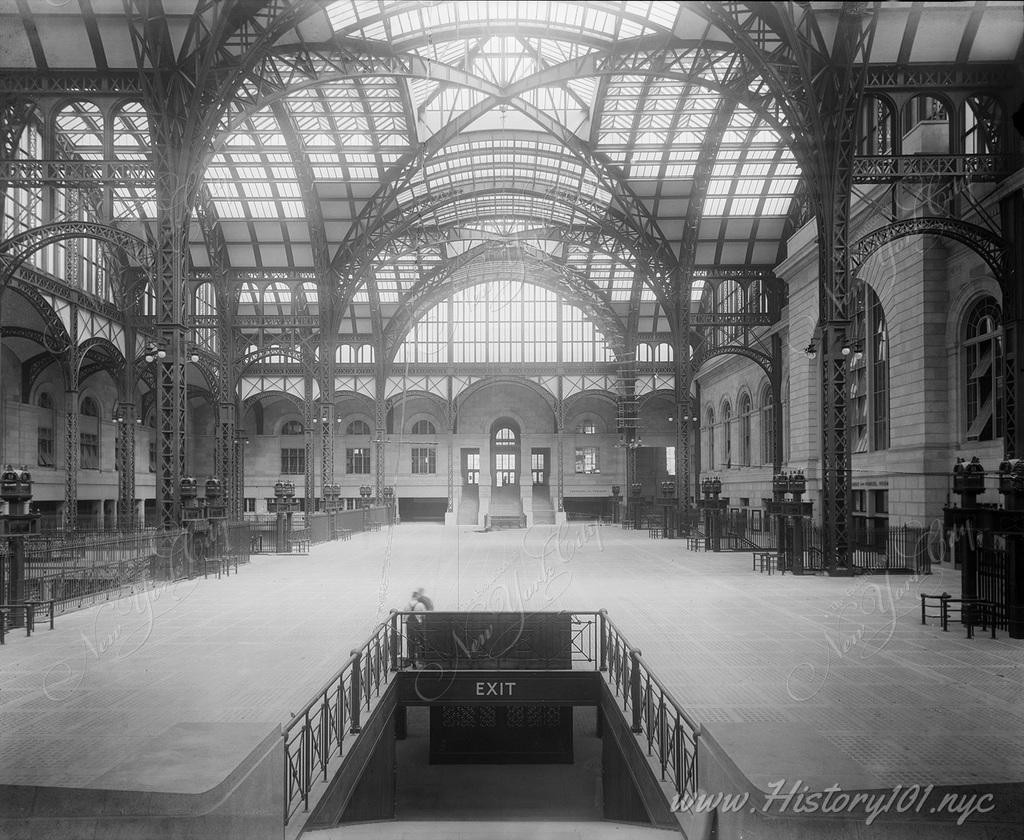
1905: Main Concourse at Pennsylvania Station
A photograph which illustrates the great style, symmetry and lighting of Penn Station's Main Concourse.
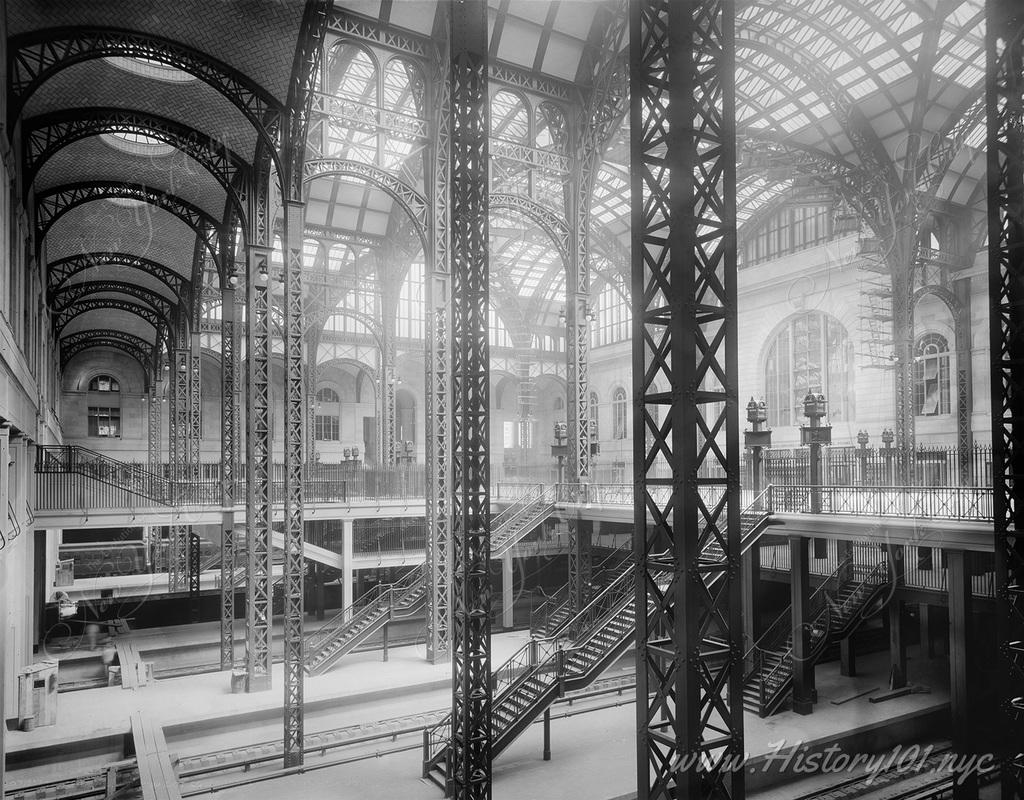
1910: Penn Station: Architectural Masterpiece Shaping NYC's Transit History
Explore Penn Station's 1910 debut, a Beaux-Arts jewel by McKim, Mead & White, pivotal in reshaping NYC's transportation and urban fabric
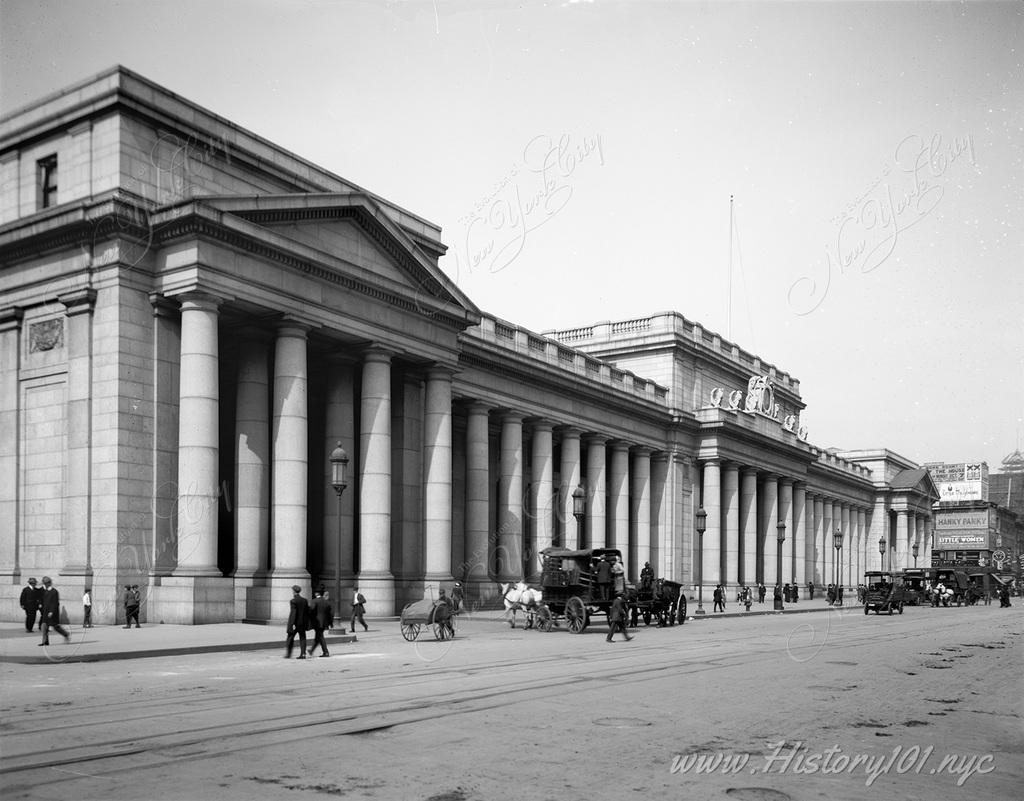
1910: East Facade of Pennsylvania Station
Pedestrians walk in front of the recently completed Penn Station - whose opulence and grand design would make it one of the city's most cherished landmarks.
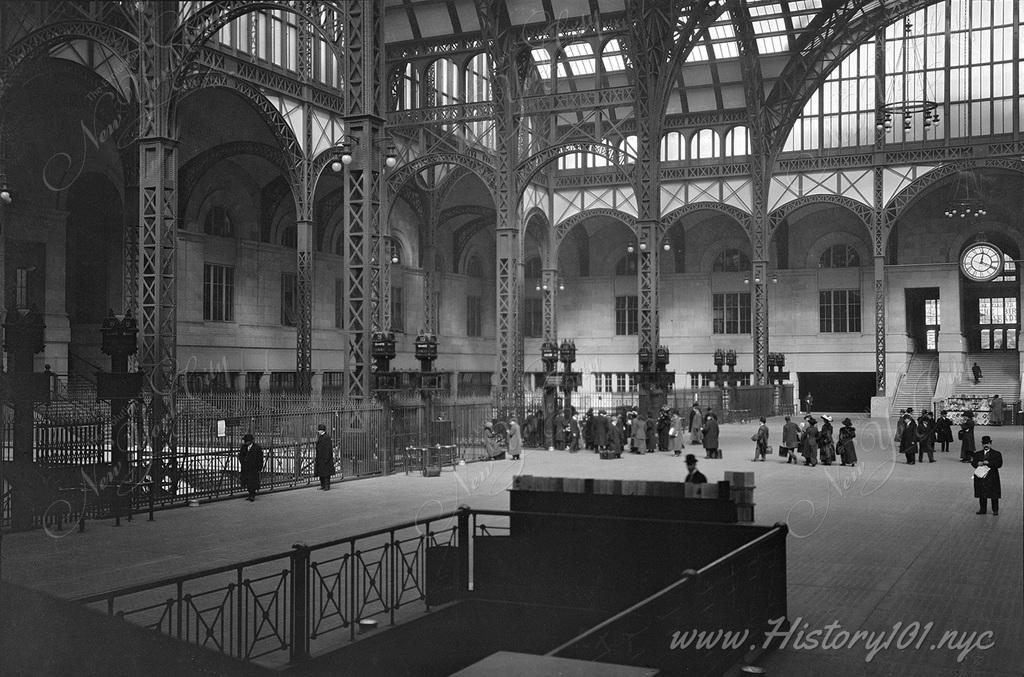
1910: Pennsylvania Station Interior
Photograph of pedestrians commuting at the Pennsylvania Station, where the Long Island Railroad opened to the public on September the 8th, 1910.
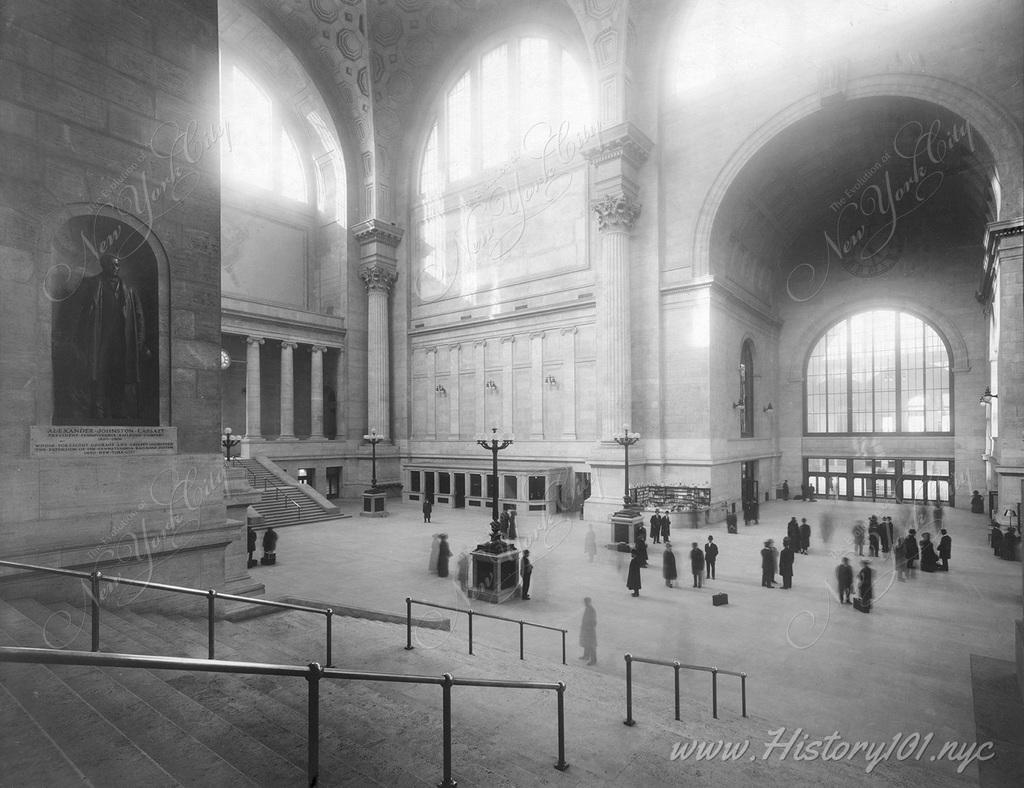
1911: Waiting Room at Pennsylvania Station
Passengers in the waiting room at Pennsylvania Station, with statue of Alexander Johnston Cassatt, president of the Pennsylvania Railroad Company.
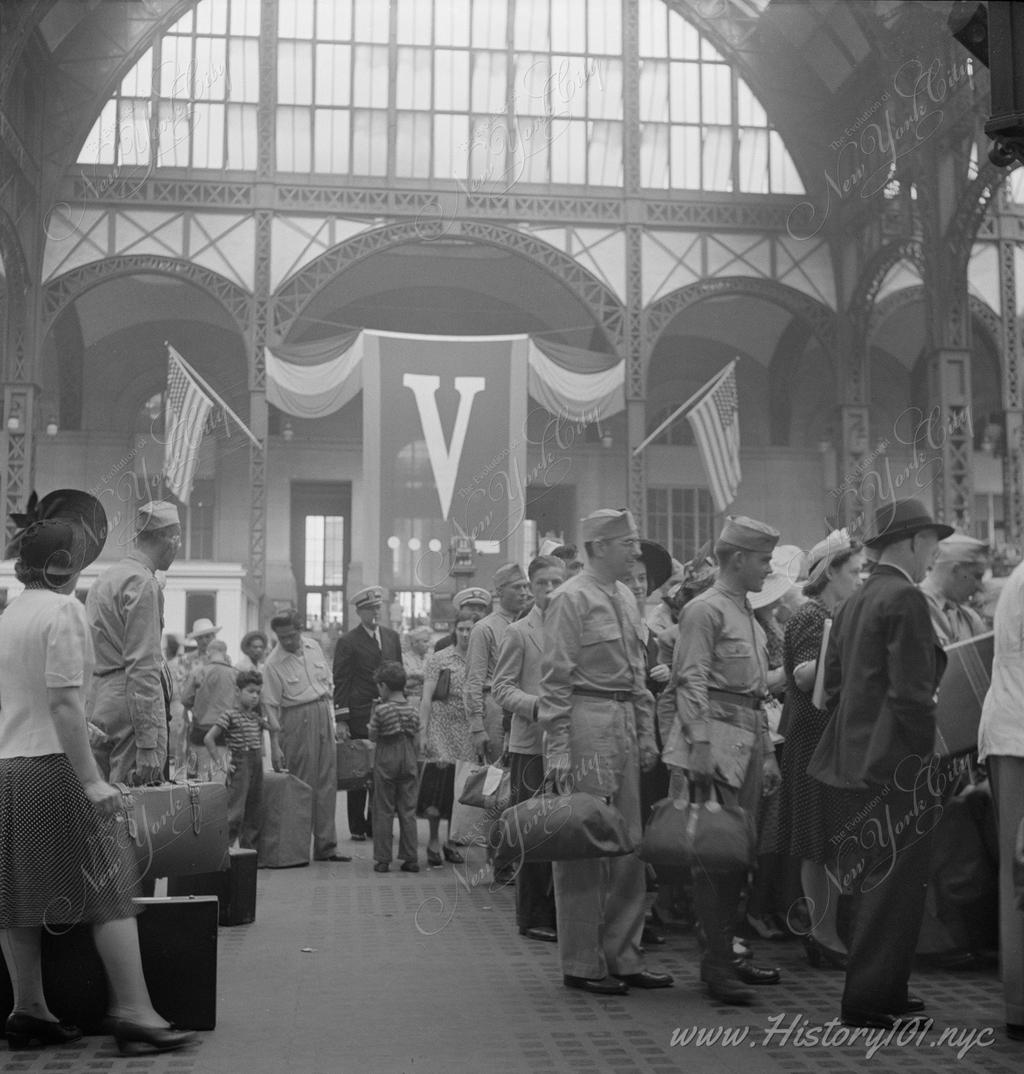
1942: Soldiers at Pennsylvania Station
Soldiers and sailors line up inside the concourse of Pennsylvania Station.
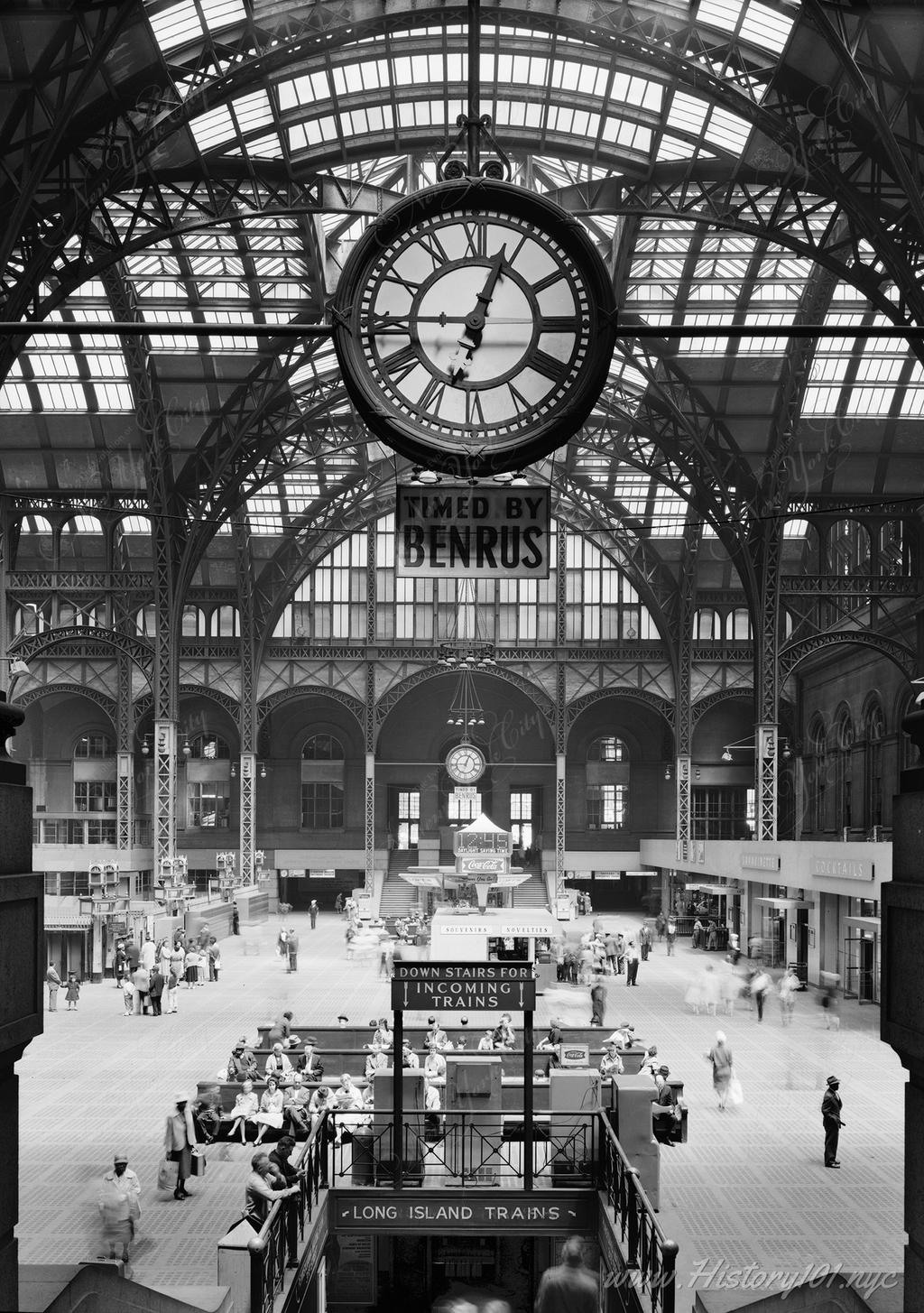
1962: Clock at Pennsylvania Station
Photograph taken from a Historic American Buildings Survey on April 24, 1962 of the Pennsylvania Station Concourse from the south.
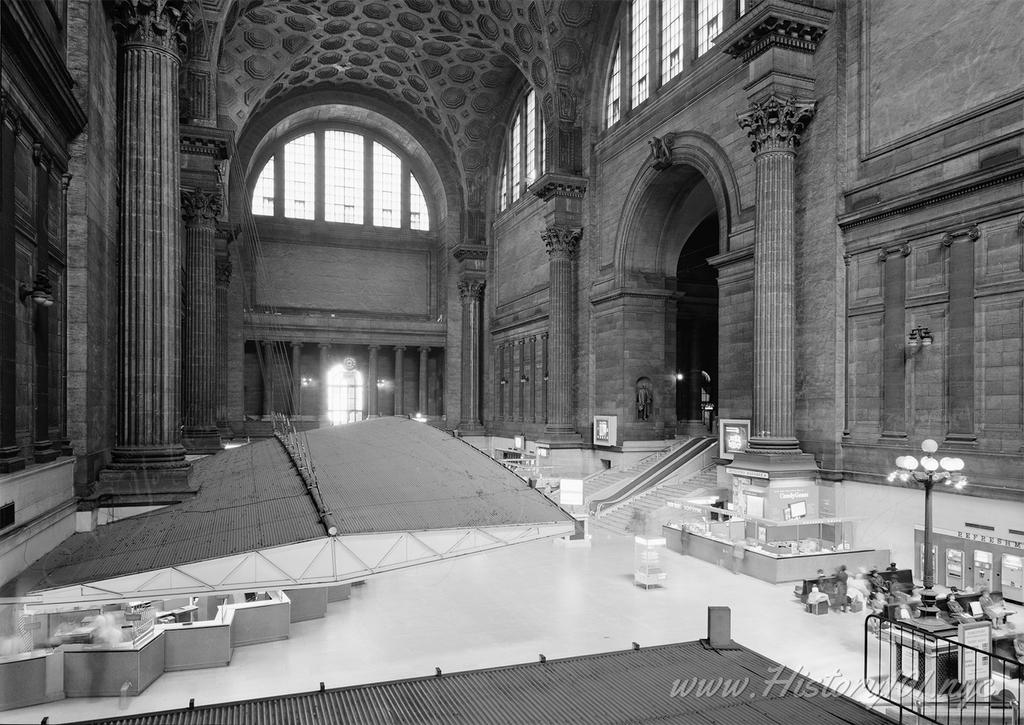
1962: Pennsylvania Station, Interior Entrance
Photograph of Pennsylvania Station's Entrance and Waiting Area.
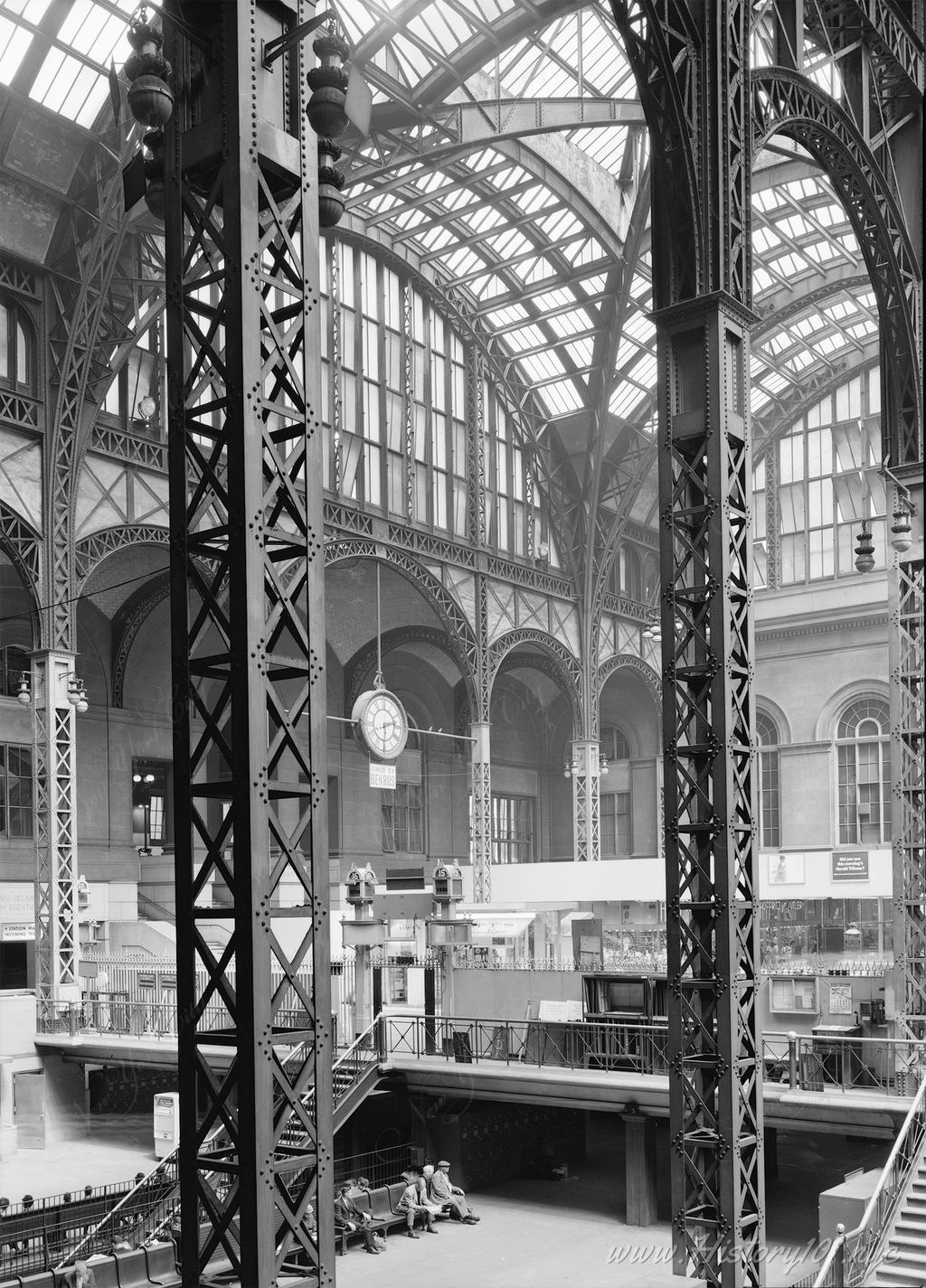
1962: Pennsylvania Station
Photograph of the steel support beams of Pennsylvania Station's famous Main Concourse.
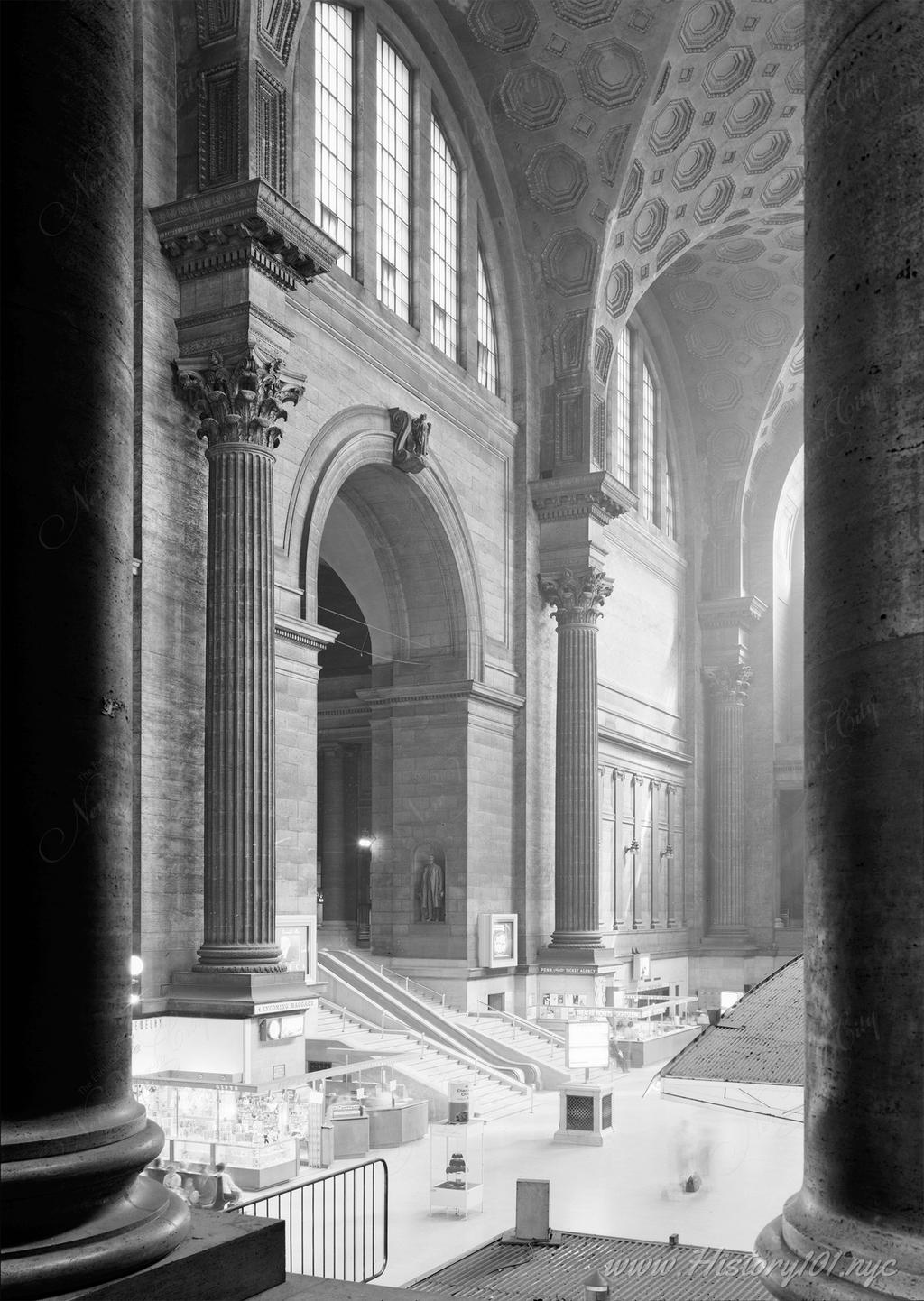
1962: Pennsylvania Station Interior Masonry
Photograph of the elaborate stonework and pillars that once adorned the walls of Pennsylvania Station.
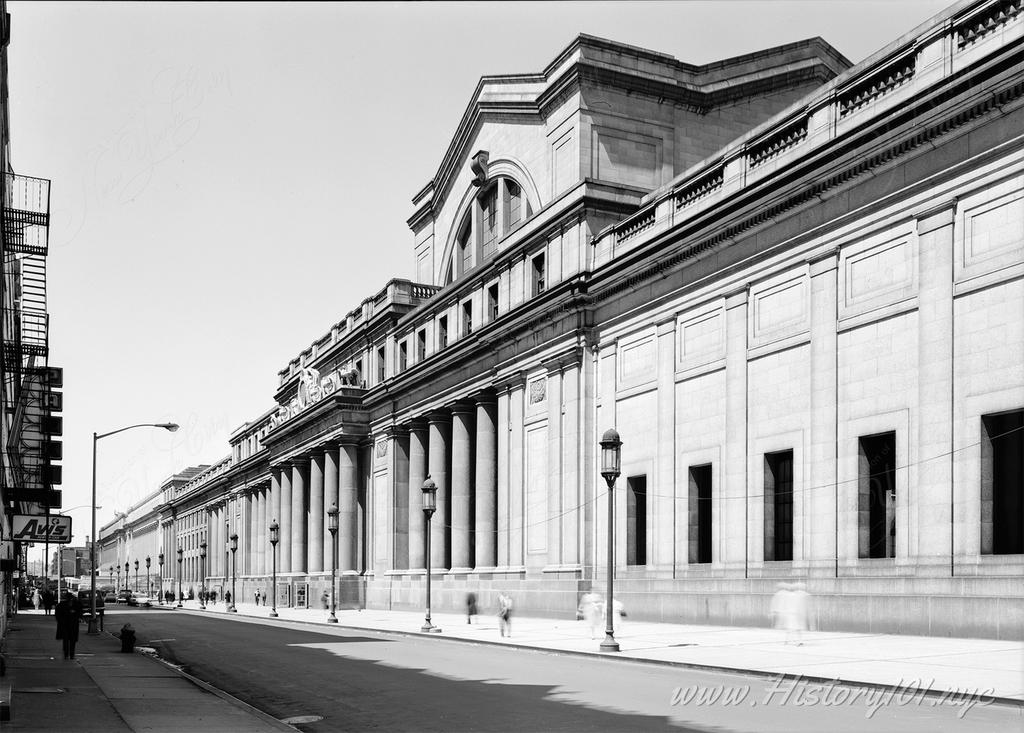
1962: Pennsylvania Station Facade
Photograph of Pennsylvania Station's southern facade along 31st Street.
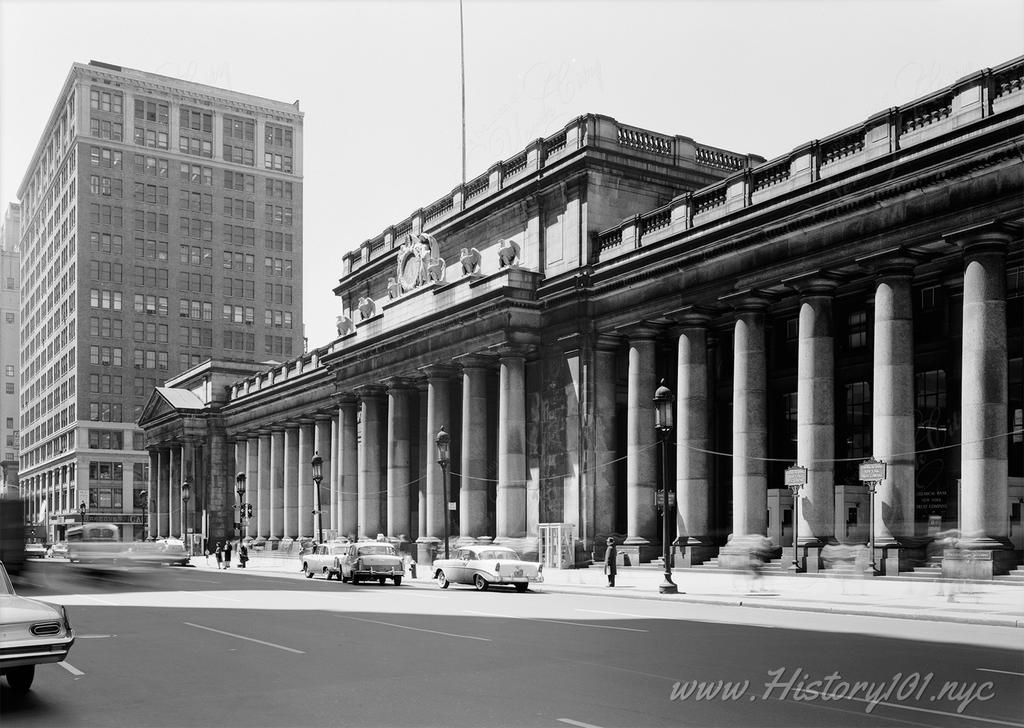
1962: Pennsylvania Station and Seventh Avenue
Photograph of Pennsylvania Station's Entrance at 370 Seventh Avenue.
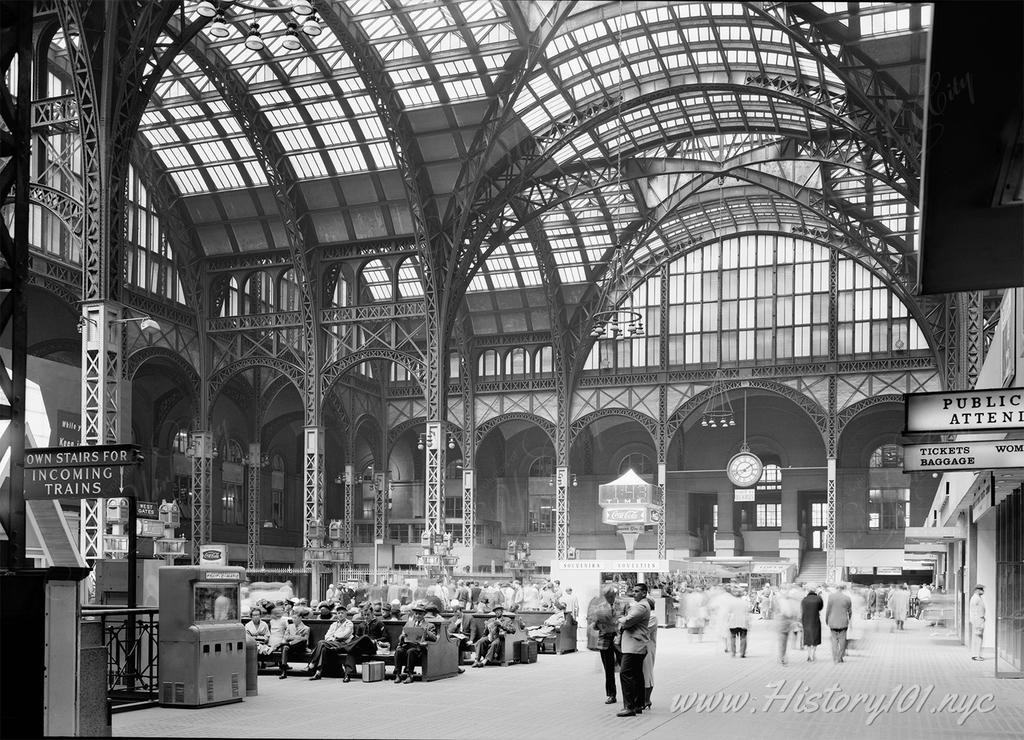
1962: Pennsylvania Station Concourse Interior
Photograph of passengers waiting for their train at Pennsylvania Station's Main Concourse.
